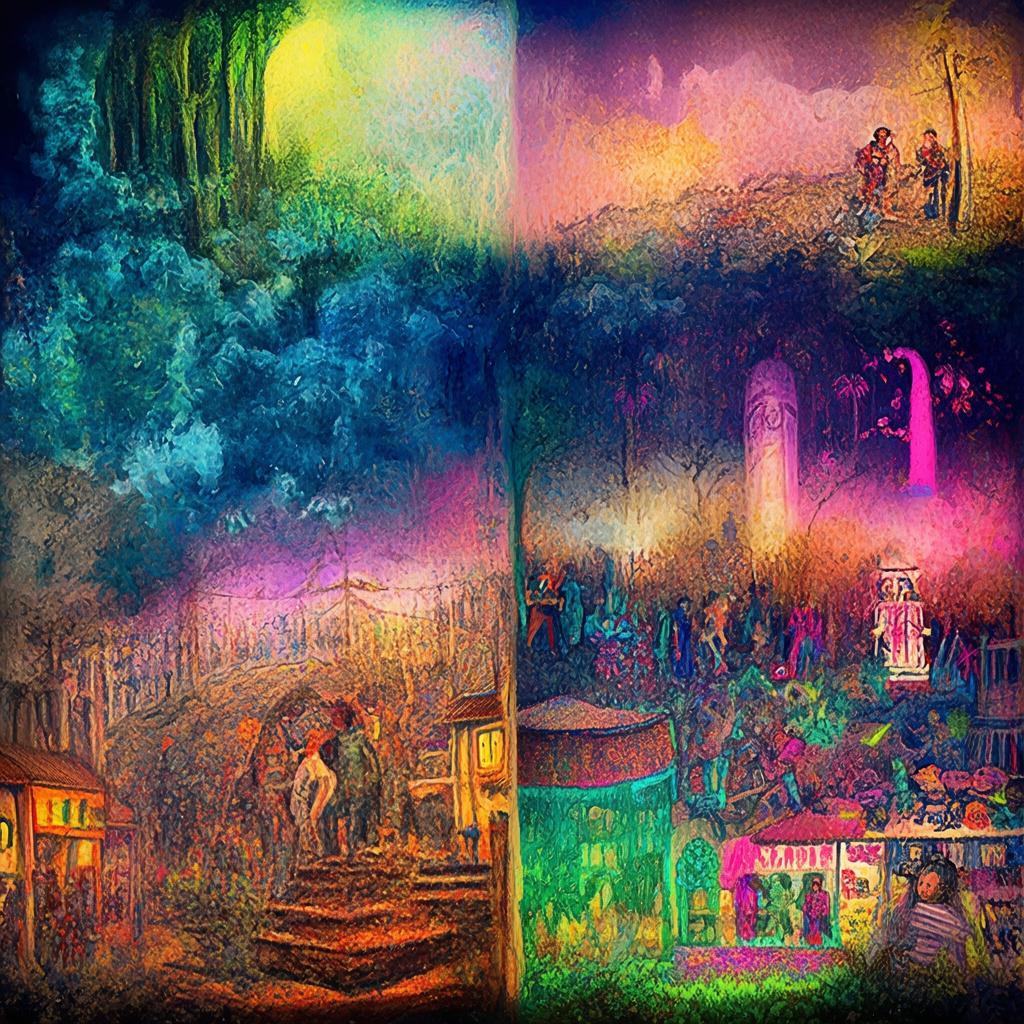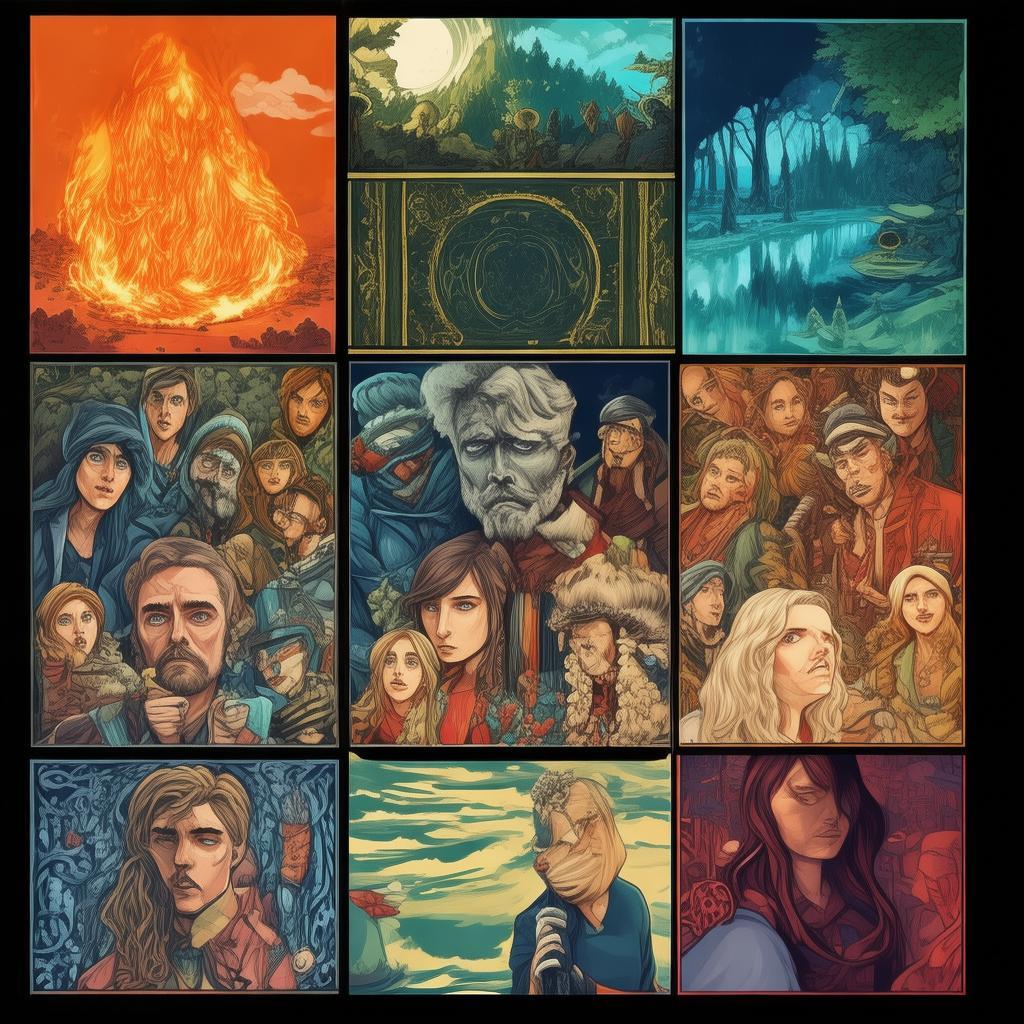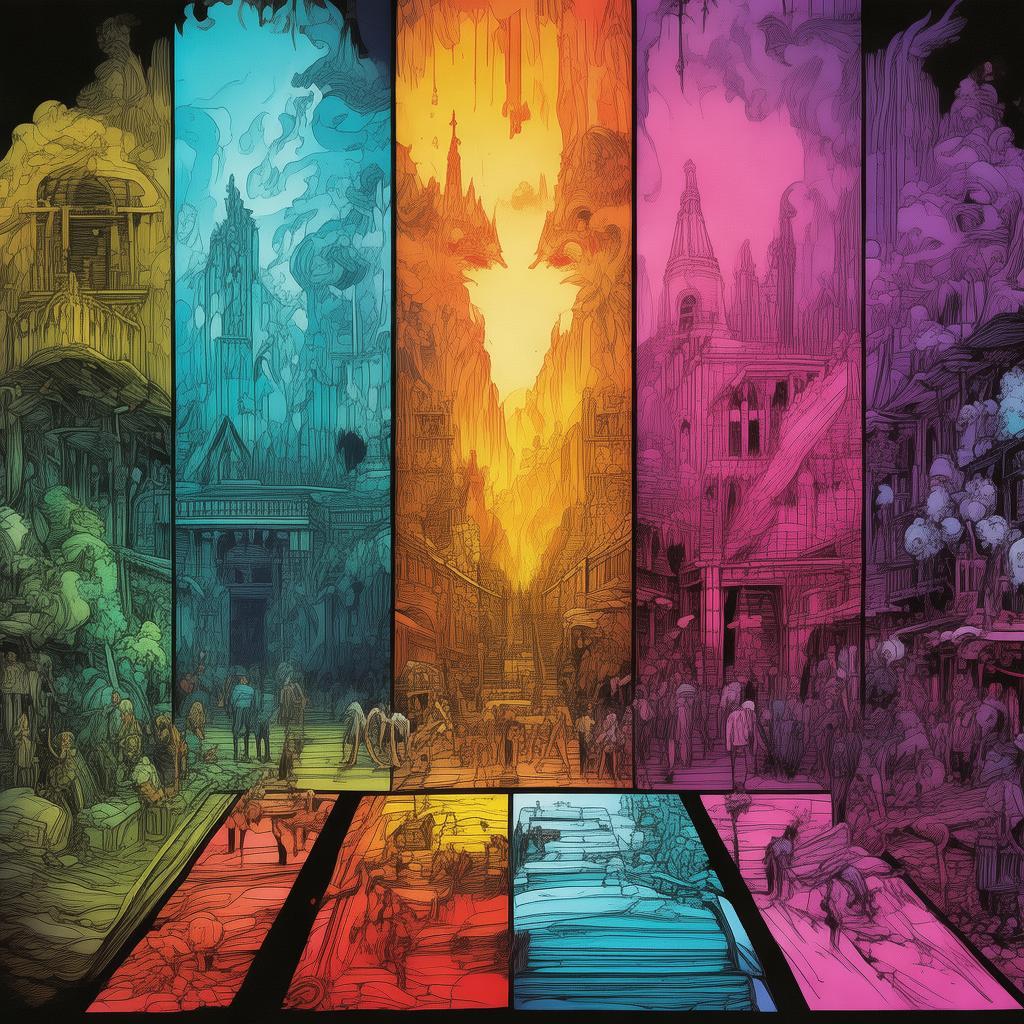The Homeland's Resilience: A Story of Its Strength
In the shadow of the towering mountains that bordered their ancient homeland, the village of Eldergrove thrived. The land was rich, the people were kind, and life moved at a pace that allowed for the simple pleasures of living to take precedence over the demands of the world beyond their borders. That was until the war came.
The distant rumble of battle had been a persistent whisper in the ears of Eldergrove's inhabitants, but it was a whisper they had learned to ignore. The conflict, a brutal and senseless squabble over resources and power, had raged for years, but it was always somewhere else. Until now.
One morning, the silence was shattered by the sound of hooves thundering towards the village. The villagers, accustomed to the peace of their mountain retreat, stumbled out of their homes in a panic. They watched, eyes wide with horror, as a detachment of soldiers from the opposing army descended upon them.
The soldiers were brutal and relentless. They burned crops, destroyed homes, and took whatever they wanted, leaving a path of destruction in their wake. The villagers, though terrified, fought back with whatever they could muster—axes, spears, even their bare hands. But the soldiers were too many, too well-equipped.
As the smoke cleared, the village lay in ruins. The people of Eldergrove were scattered, some lost, some injured, and many driven to the brink of despair. But in the midst of their despair, a glimmer of hope emerged. The village elder, a wise and stoic man named Thalor, called the people together.
"We must stand united," Thalor declared, his voice steady and filled with a strength that belied his age. "The enemy will not be deterred by our suffering. We must fight back, not just to protect our homes, but to protect our way of life."
The people of Eldergrove, weary and broken, nodded in agreement. They had no choice but to fight. They organized, they trained, and they began to prepare for the inevitable return of the enemy. They knew it would be a hard-fought battle, but they were determined to protect their homeland.
Days turned into weeks, and the villagers grew stronger. They practiced their combat skills, they strategized, and they learned to rely on one another. But as the days passed, a shadow began to grow within the ranks of the defenders. A traitor, a man who had once been a respected member of the village, had begun to whisper doubts among the people.

"The soldiers are not as strong as we think," he would say, his words laced with fear and a hint of envy. "We can surrender, and they will let us live."
The villagers were torn. They had fought so hard to protect their homeland, but the whispers of the traitor began to take root. Some began to doubt their cause, to question their resolve. And as the days went by, the once-united village began to fray at the edges.
Thalor, sensing the growing discord, knew that they needed a leader. He turned to a young woman named Elara, a fighter with a heart as fierce as her sword. "Elara," he said, "you must take charge. We cannot afford to falter now."
Elara nodded, her eyes filled with determination. She knew the risks, but she also knew that the survival of her homeland rested on her shoulders. She took the reins, and the villagers, seeing her resolve, rallied behind her once more.
The day of reckoning came. The enemy returned, and this time, they brought with them a new weapon—a fearsome war machine that could level the village in a single breath. The villagers, led by Elara, took their positions. They were ready to fight, ready to die if necessary.
The battle was fierce. The villagers fought with all their might, their cries and the clashing of weapons filling the air. Elara, in the thick of the fray, saw the traitor in the distance. With a roar, she charged towards him, her sword raised high.
"You will not betray us!" she shouted, her voice cutting through the chaos.
The traitor, caught off guard, raised his own weapon. But Elara was too fast. She lunged, her blade slicing through the air with a sound like a storm. The traitor fell, and with him, the last vestige of doubt within the ranks of the villagers.
The battle raged on, but with Elara leading the charge, the villagers fought with renewed vigor. The enemy, seeing the resolve of the people, began to falter. And then, the tide turned.
The soldiers, once so confident, now found themselves surrounded. The villagers, led by Elara, fought with a ferocity that surprised even themselves. They pushed the enemy back, driving them from the village and into the mountains beyond.
The war raged on for years, but the people of Eldergrove held their ground. They fought, they survived, and they thrived. They had learned that the greatest strength of their homeland was not in their weapons or their numbers, but in their unity and their resilience.
The story of Eldergrove spread far and wide, a testament to the indomitable spirit of a people who refused to be broken. And as the years passed, the village of Eldergrove became a symbol of hope, a beacon of strength in a world that often seemed dark and devoid of light.
The people of Eldergrove knew that their victory had come at a great cost, but they also knew that it had been worth every sacrifice. They had protected their homeland, not just for themselves, but for future generations to come. And in that knowledge, they found the greatest strength of all.
✨ Original Statement ✨
All articles published on this website (including but not limited to text, images, videos, and other content) are original or authorized for reposting and are protected by relevant laws. Without the explicit written permission of this website, no individual or organization may copy, modify, repost, or use the content for commercial purposes.
If you need to quote or cooperate, please contact this site for authorization. We reserve the right to pursue legal responsibility for any unauthorized use.
Hereby declared.









